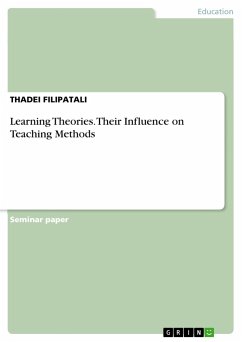Seminar paper from the year 2013 in the subject Pedagogy - Pedagogic Sociology, grade: 3,0, University of Vechta, course: Spracherwerbs- und Sprachlehrforschung. Learning and Teaching Languages, language: English, abstract: [...] At the beginning of the semester, the students of the course concerned with the topic of "HowLanguages are Learned" were asked to give an immediate response to several popularopinions.With the benefit of hindsight, one of the most interesting responses was that I ascribed muchimportance to the following statement: "The earlier a second language is introduced inschool programmes, the greater the likelihood of success in learning."(cf. L&S, p. xvii), and Iam sure that many of my fellow students agreed strongly as well.After having studied several theories and research findings concerning this question - thequestion whether there is the age in which a second language learner should start to get intocontact with a foreign language- I could conclude that thisquestion cannot be answeredsimply by "yes" or "no" since there is a great number of factors influencing success. Learnersvary a lot in terms of their brain's development, their intelligence, their environment in whicha second language is spoken, etc. pp. Furthermore, in order to answer the age-question, it isimportant to be aware of a certain goal of second language acquisition. Is it pronouncingwords like a native-speaker? Is it being able to take part in conversations? These factors andquestions should thus also be analyzed.Consequently, I would like to present basic theories about this subject as well as researchfindings and, as explained above, other factors influencing second language acquisition in thefollowing. The results will be supported by my own way of acquiring a second language andwill then form the basis for the consequences educators should consider when planningforeign language lessons.Since we used "How Languages are Learned" by Patsy M. Lightbown and Nina Spadaas anintroduction to this topic, my elementary knowledge is based on this book. [...]
Hinweis: Dieser Artikel kann nur an eine deutsche Lieferadresse ausgeliefert werden.
Hinweis: Dieser Artikel kann nur an eine deutsche Lieferadresse ausgeliefert werden.








